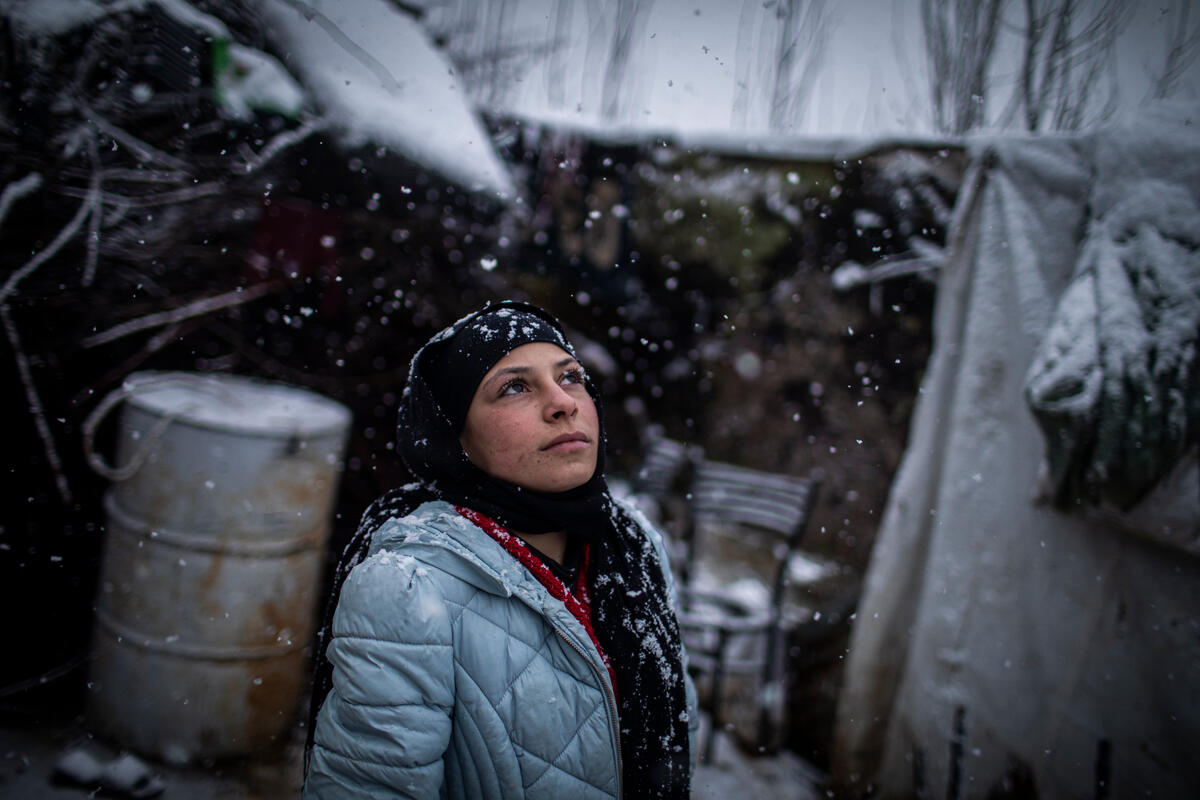Polish city gives Syrian poet peace and space to speak out

Polish city gives Syrian poet peace and space to speak out
Syrian poet Kholoud Charaf, granted a two-year residency in the Polish city of Kraków, is making good use of her new position to speak out about the suffering caused by the civil war in Syria and of the refugees who have fled the conflict.
In poetry and prose, and more directly at public appearances, she has written and spoken about their plight, calling on people to open their hearts to refugees.
She tells audiences: “The suffering of one nation somewhere is always the suffering of the whole of humanity.
“Refugees are human beings like you. We did not leave our homes, our memories, our childhoods, our language and our culture because we wanted to take your lives away from you. We left because we were forced by war.”
Kholoud herself is not a refugee but arrived in Kraków earlier this year on a scholarship to write in residence for two years in a peaceful place. The city of Kraków is funding her stay and she has a room in the Villa Decius, a restored Renaissance palace in a leafy suburb that is now a cultural centre.
“Kraków feels like coming home,” says Kholoud, 38, who, since arriving from Syria in February, has been writing poetry and prose, as well as painting.
Kholoud was chosen as a writer deserving support by the International Cities of Refuge Network (ICORN), a Norwegian organization that links nearly 70 cities giving temporary shelter to authors facing persecution.
“When the helmet of fear is on your head, you cannot write anything openly.”
In 2011 Kraków, a city with a rich literary history and home to writers such as Joseph Conrad, Stanislaw Lem and Czeslaw Milosz, became the first ICORN member from Central and Eastern Europe.
The city of Kraków, the Villa Decius Association and the Kraków Festival Office have facilitated Kholoud’s residency.
“We try to be a voice of solidarity in the context of refugee phobia in Eastern Europe,” says Robert Piaskowski, programme director of the Kraków Festival Office.
“When the helmet of fear is on your head, you cannot write anything openly,” says Grzegorz Jankowicz, a journalist who is helping to promote Kholoud and put her in touch with fellow writers.
“It is interesting for me to work with her,” says Paweł Łyżwiński, Kholoud’s helper at Villa Decius. “Her poetry and her attitude to life are very spiritual; different from our rational way of looking at the world.”
Kholoud comes from the village of Al Mjemr near the predominantly Druze city of Sweida in southwestern Syria.
As a child, she had a painful lesson about the fragility of life and our inability to prevent suffering.
“We humans have this ugliness in us. We try to hide it but we can’t.”
“I was in my room. I opened the window to feel close to nature. Just outside, there was a big butterfly. Its wings were fluttering. It was autumn and she wanted warmth. There was also a big, black scorpion, the size of my hand. The scorpion caught the butterfly and she tried to escape. It was a real battle. And I could not do anything because of the net on the window.”
That memory provided the title for her debut volume of poetry, "The Remains of the Butterfly", published in 2016, which has been well received by Arab critics.

Kholoud was to learn more about empathy and impotence after leaving the University of Damascus with a diploma as a medical technician. She worked in the medical unit of a women’s prison and was unable to prevent the death of a prisoner.
She experienced the agony of observing helplessly even more strongly when, in July 2018, IS attacked her home town, about which, from Kraków, she wrote an article for Pen International.
“We humans have this ugliness in us. We try to hide it but we can’t. I am always passionate, wanting to help. But sometimes there is nothing I can do.”
In Kraków’s old town, Kholoud is reminded of Damascus, “the crowds, the sweet shops, the arches, the pigeons, the domes…”
“I try to hug this girl inside me, to tell her it is OK, she is not alone.”
Looking at books in the former apartment of Czeslaw Milosz, soon to be turned into a venue for writers’ workshops, Kholoud says she feels the late Nobel laureate’s presence.
“I feel that he (Milosz) is here. I could write very easily in this place,” she whispers, looking through the window into the quiet courtyard below.
Thanks to the tranquillity of Kraków, Kholoud has just completed a second book, an autobiography entitled Return Journey.
“It is about the girl I was and the woman I am now,” she says. “I try to hug this girl inside me, to tell her it is OK, she is not alone.”
We speak of the plight of Syrians in Syria and in exile and Kholoud’s eyes fill with tears. All she can do is observe and write from a distance.
In a heart-wrenching poem about war, she concludes:
They carried the remains of themselves
They took some coffee
A pen
A handful of memories wrapped in a mother’s kerchief
And went to the mountains
Where the eagles from grandmother’s stories live









